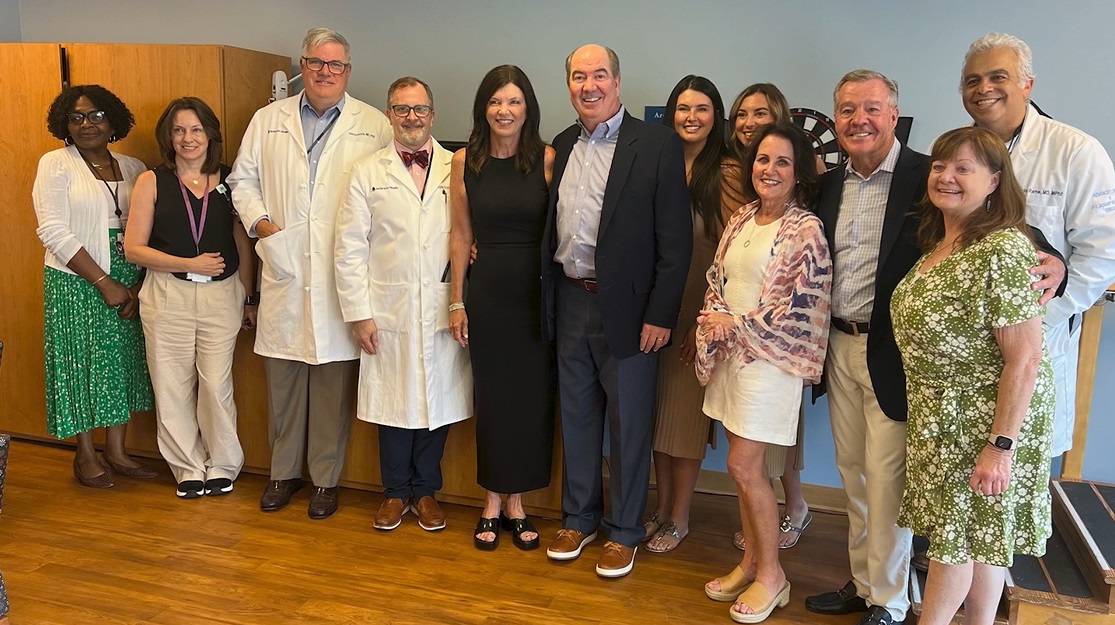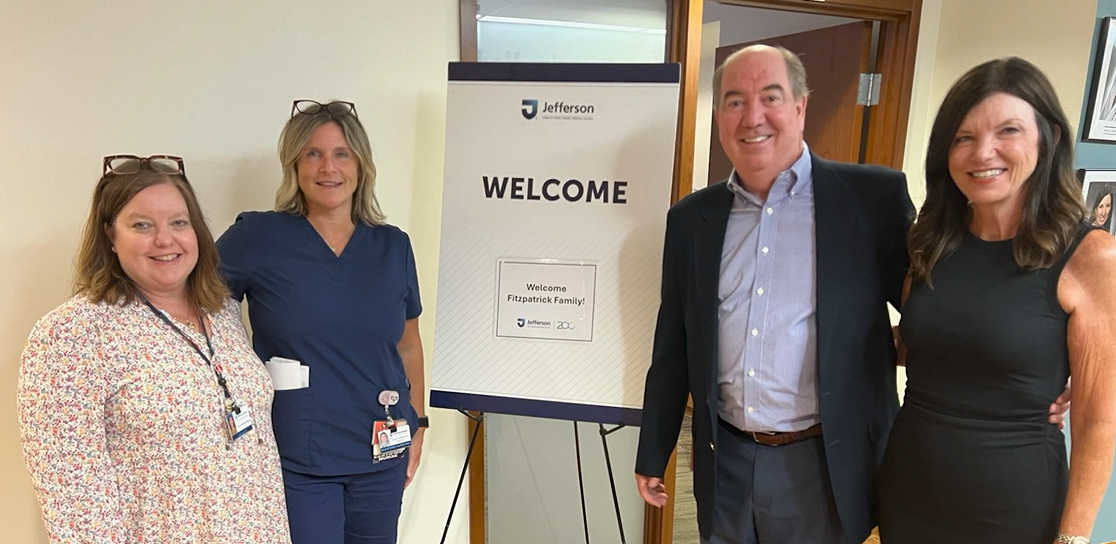Also, Dennis’ brother and sister-in-law, Tom and Lois Fitzpatrick, made a generous gift to the heart transplant program. Their philanthropy supported the renovation of Jake’s Room, a dedicated space in the Gibbon Hospital Building for cardiology patients and their families, a patient assistance fund and support group, cardiovascular fellowships, and continuing medical education for providers.
“When someone asked them why they donated, my brother said: ‘For the next Dennis,’” says Dennis. “Their point is that you have to keep giving back in order to continually improve the care.”
The couple stress the importance of philanthropy.
“I think of all the tomorrows I’m going to have because of the medical care and the technology,” Dennis says. For example, the LVAD that kept him alive while he waited for a transplant.
“My doctor said that the device has been developed over time, and if you went back 10 or 15 years, it only worked fifty percent of the time,” he says. Because of ongoing research, funded by philanthropy, the success rate is well over 90 percent now. “These things don’t happen by themselves, they happen through contributions and the efforts of people to make all the pieces successful.”
Lynn adds: “Without giving back, we don’t get anything in this world. The technology is unbelievable, the nursing staff… the education… (Researchers) are on the brink of so many discoveries that make life better for others. Without people helping these causes, we don’t get all the tomorrows.”

